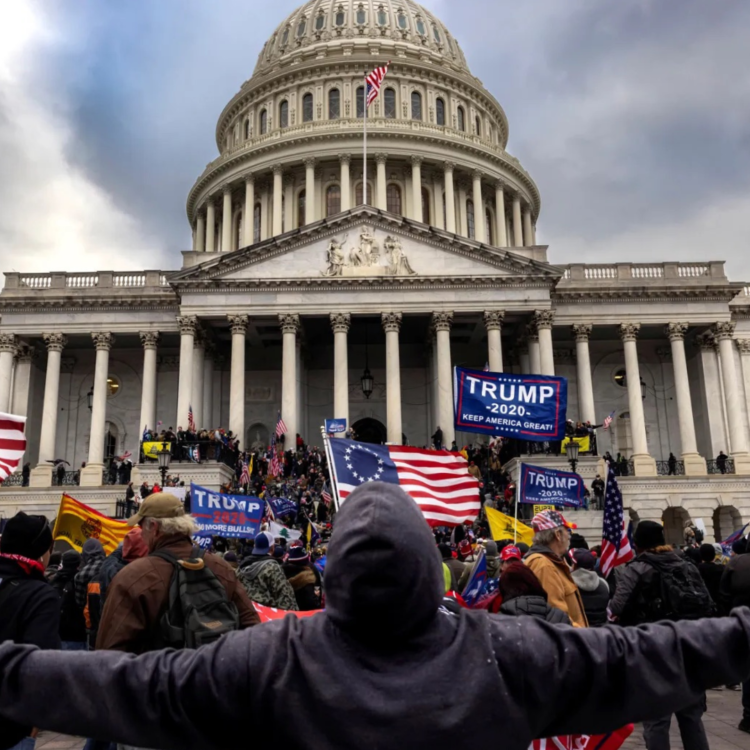Five prominent members of the Proud Boys, recently pardoned by President Donald Trump, have filed a $100 million lawsuit against the U.S. government, alleging violations of their constitutional rights stemming from their prosecutions over the January 6, 2021 Capitol attack.
Filed Friday in a Florida court, the suit includes Henry “Enrique” Tarrio, former chairman of the far-right group, along with Joseph Biggs, Zachary Rehl, Ethan Nordean, and Dominic Pezzola — all of whom held leadership roles in the group and were convicted for their involvement in efforts to overturn the 2020 presidential election.
From Prison to Plaintiff
Tarrio, who had been sentenced to 22 years for seditious conspiracy and other charges, was one of the most high-profile figures in the post-election efforts to keep Trump in power. Biggs, Rehl, and Nordean faced similar charges and were convicted after a landmark trial that drew national attention. Pezzola, who was caught on video smashing a Capitol window with a stolen police shield, was also sentenced to prison.
Despite receiving pardons or commutations as part of Trump’s sweeping clemency order on his first day back in office in 2025, the group now argues that their rights were violated during prosecution and incarceration.
“Redress for Constitutional Wrongs”
According to the legal filing, the plaintiffs are seeking damages for what they call “multiple violations of their constitutional rights,” though the lawsuit does not specify exactly which actions or procedures they believe crossed legal lines.
The complaint marks one of the first high-profile legal challenges brought by Jan. 6 defendants after receiving pardons. While clemency clears their legal records, the suit appears aimed at challenging the process that led to their convictions in the first place — and potentially reframing their role in the Capitol riot.
Trump’s Controversial Clemency Order
On January 20, 2025, President Trump issued a controversial mass clemency order that pardoned nearly all of the more than 1,500 individuals charged in connection with the Capitol riot. The move drew sharp condemnation from Democrats and concern from some legal scholars, who warned it could embolden future political violence.
Fourteen others received commuted sentences, while the vast majority were granted full pardons — a political gesture seen by critics as a reward to Trump’s most loyal supporters.
The Legal and Political Fallout
The lawsuit could reignite debate around Trump’s unprecedented use of clemency power and its implications for rule of law in the United States. It also raises legal questions about the extent to which pardoned individuals can retroactively seek compensation from the federal government.
As of now, the Department of Justice has not publicly responded to the filing.
While the Proud Boys’ leadership was dismantled in the aftermath of Jan. 6 through a series of high-profile convictions, this lawsuit signals that their legal and political battles are far from over — even with presidential pardons in hand.

 English
English



























































